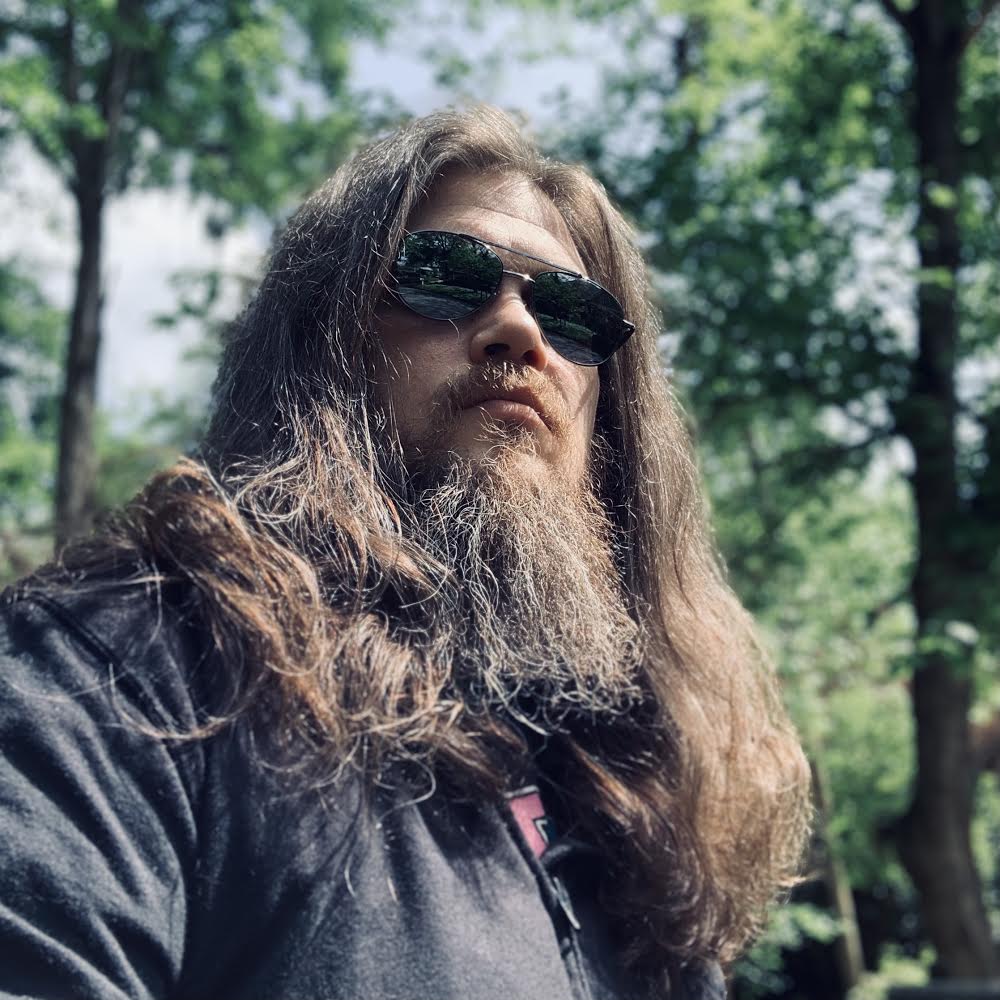Immortal She-Hulk gives Jennifer Walters a new understanding of being a Hulk
Writer Al Ewing discusses his upcoming Immortal She-Hulk #1 one-shot
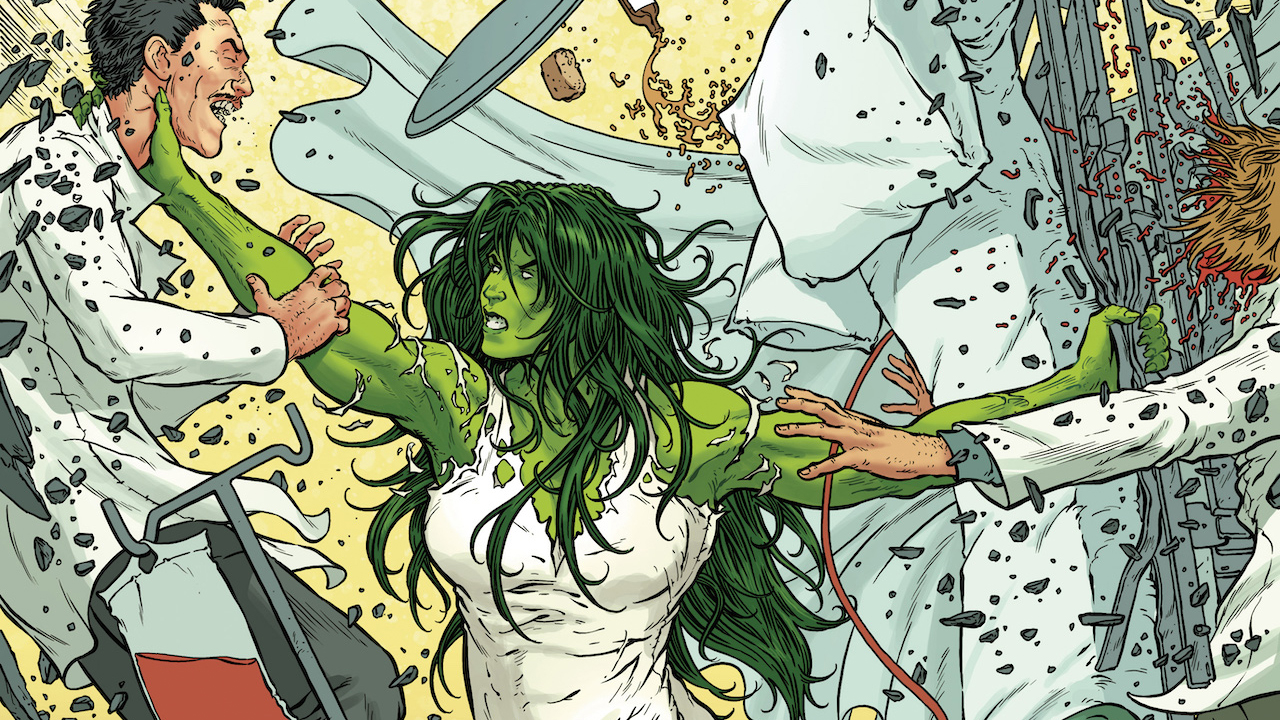
Writer Al Ewing's Immortal Hulk ongoing series has rewritten the rules of what it means to be a Gamma-mutate like Bruce Banner – and on September 23, Bruce's cousin Jennifer Walters (a.k.a. She-Hulk) is going to learn firsthand just how harrowing the experience can be, in Ewing and artist Jon Davis-Hunt's Immortal She-Hulk #1 one-shot.
Though she's often been in control of her Hulk-outs, something Ewing himself points to as a core aspect of her character, She-Hulk recently died in Empyre #4 with her body being used as a host for a Cotati warrior – and that journey will have a dramatic effect on where she goes from here.
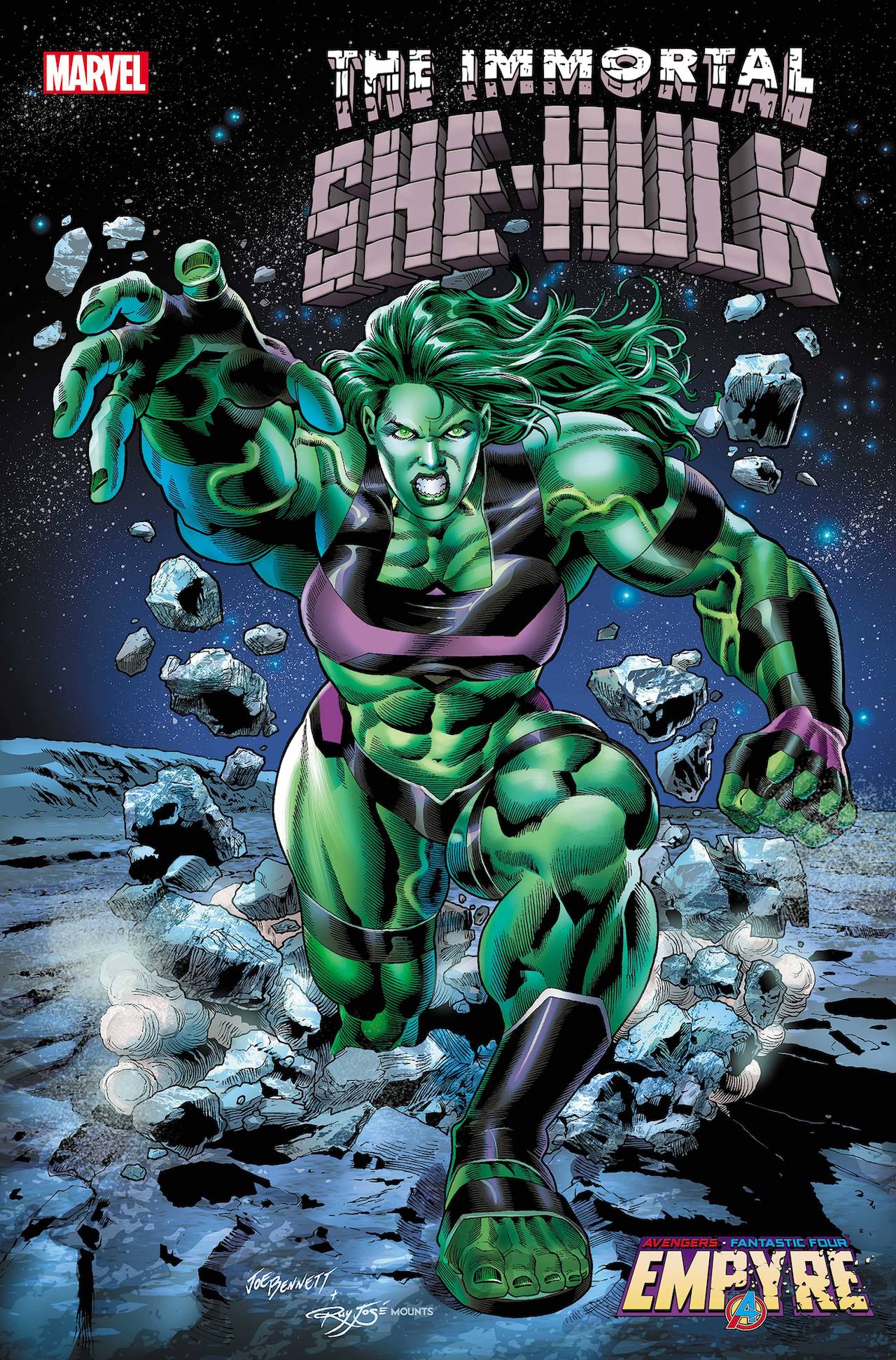
Newsarama spoke with Ewing ahead of Immortal She-Hulk's release, delving into what Jen Walters will find beyond the Green Door, the ever-changing place of superhero death in comic books, and how this will all play out in She-Hulk's future.
Newsarama: Al, She-Hulk's status quo just changed dramatically in Empyre #4 in that she's currently dead. Given the Immortal designator of your upcoming She-Hulk one-shot, how does that death factor in here?
Al Ewing: I don't think it's a good idea for me to completely give away major plot points of an issue that hasn't hit the stands yet in order to whet reader appetite for one further down the line, so I can't answer this question precisely.
Even in an interview that's likely to be read by the more genre-savvy fans out there, I'd like to keep that figleaf that some readers haven't guessed what's going to happen. (If that's you, turn away now.)
But if you've been reading Immortal Hulk, you can probably make at least an educated guess at how Jen dying during Empyre might give us an opportunity to examine her character and history through that lens - and you're probably right. The question at this point will be how that beat falls.
Comic deals, prizes and latest news
Get the best comic news, insights, opinions, analysis and more!
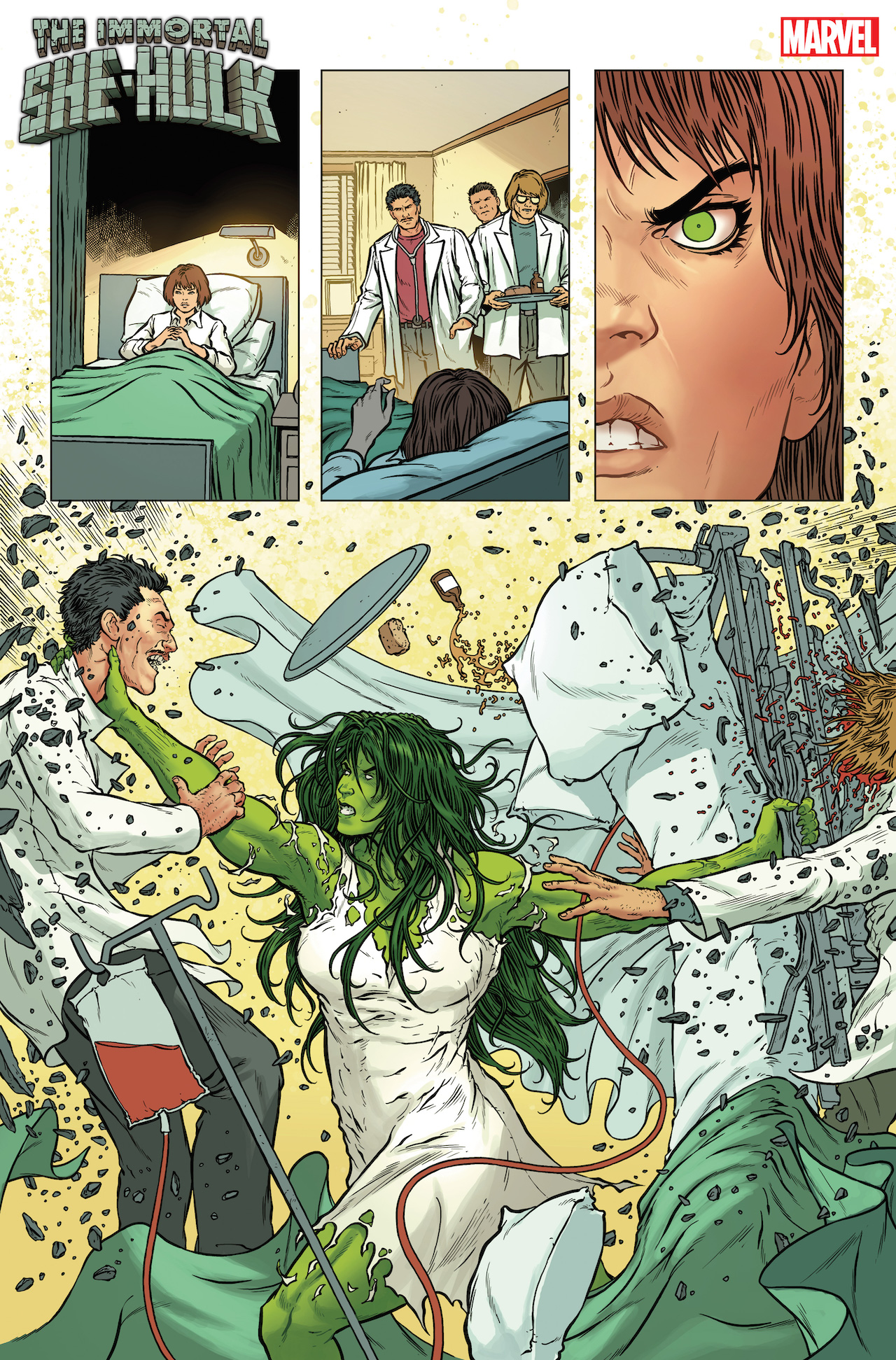
Nrama: She-Hulk has been through some traumatic experiences in recent years that have evolved her personality significantly. Are we headed for a 'Devil She-Hulk' sort of reckoning for Jen Walters?
Ewing: That'd be a predictable path for us to follow, so it's probably the wrong path for us to follow.
Also, what does 'Devil She-Hulk' even mean in this context?
Jen is such a different character to Bruce that I don't think giving her a 'Devil' persona would make sense. Even now, when her Hulk persona in the Avengers book is much more terse and traditionally Hulk-esque, we can see from her thought balloons that her internal setup is completely different, to the extent that I'm not sure her Hulk is a different personality so much as a different lens.
Nrama: The solicit for Immortal She-Hulk implies what Jen experiences beyond the Green Door is "horrifying." What is She-Hulk going through specifically in this tale?
Ewing: Put simply, she's going through being a Hulk. We've set up a situation where being a Gamma mutate comes with certain facts that must eventually be faced, and what's happened in Empyre means it's Jen's turn to face them.
Nrama: You're working with Jon Davis-Hunt on Immortal She-Hulk. What makes him the perfect artist for this one-shot?
Ewing: I have worked with Jon before - we did some work together on a side character in the Judge Dredd universe, before either of us started working on American comics, and he was already a fantastic artist then, so it's great seeing how far his style has evolved.
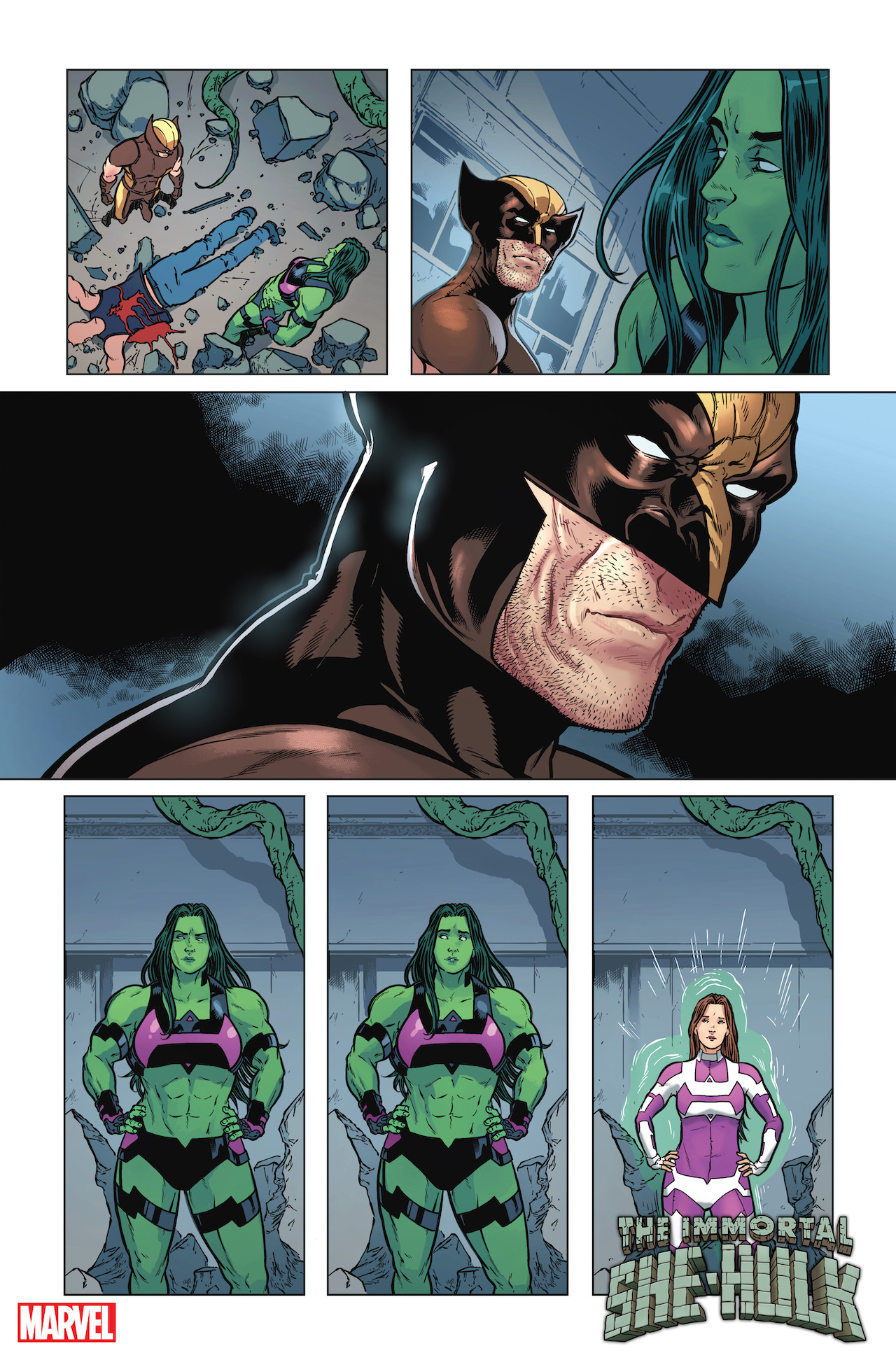
With Jon, I have the luxury of knowing I can write a scene, and whether it's a fistfight or a conversation, he'll knock it out of the park. There's a lot of work done by facial expressions in this - I'm thinking particularly of a scene from Jen's childhood, where I asked for a large amount to be conveyed by a single look, and Jon absolutely nailed it.
I hope there isn't as large a gap before I work with him again!
Nrama: When crafting Empyre, was it always in the cards to dovetail what happens to She-Hulk into the plotline of Immortal Hulk? How did that synergy come about?
Ewing: That was in right from the start - we talked about it in the writers' room. We have a Hulk, we have this story I'm telling about Hulks - it seemed a very obvious move to put these things together, and an opportunity for me to look at Jen in that context without badly interrupting what the Avengers team are doing with her.
Nrama: Jen Walters has always been an interesting counterpoint to Bruce Banner in terms of their levels of control and their experience as Hulks – something you've touched on in Immortal Hulk. What do you see as the primary tenets of who She-Hulk is? What is her immutable core?
Ewing: I think with Jen, the core is control.
Jen is traditionally in control, even when 'out of control,' and the big part of her character, both in the more traditional mode and right now, is that mix of keeping control and letting loose.
Her control over her Hulk form allows her to let the brakes off, both in her life and in combat, because she knows what she's doing. And when that control is challenged, for instance in her recent difficulties with PTSD, she has to relearn how to live as a Hulk - but she's always had more success doing that than Bruce has.
We explore that difference in the one-shot - it's about Jen trying to get to grips with what she learns in Empyre, almost interrogating it as a lawyer would, building a case.
We'll see if she's successful.
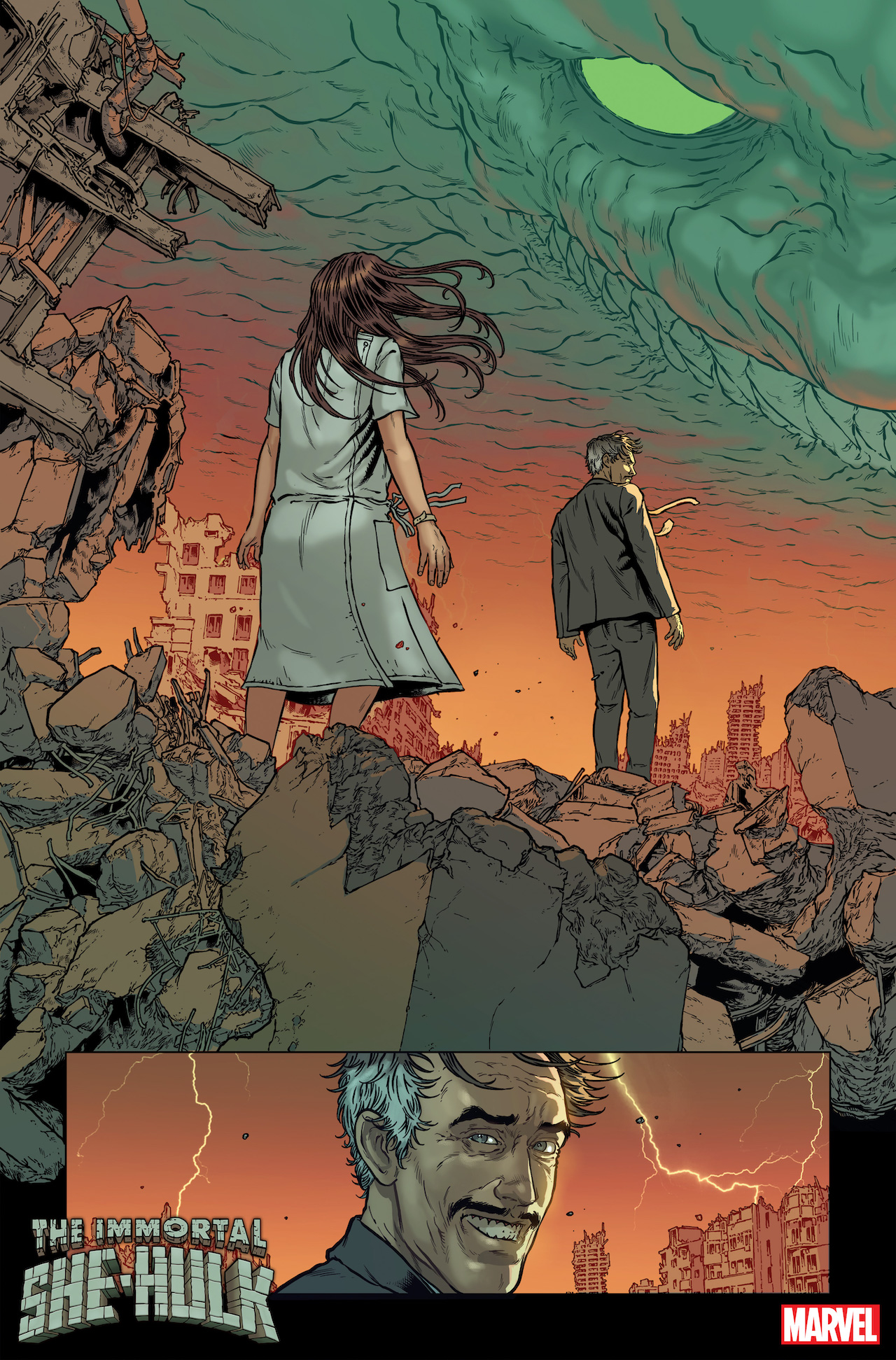
Nrama: Following this one-shot, will She-Hulk play more of a role in the ongoing Immortal Hulk series?
Ewing: I think so. There are different ways it could go, but I think Jen making at least one more appearance in Immortal Hulk would be more satisfying.
But a lot depends on the flow of the story beats - right now I'm leading up to some big moments, and it's a point where the story could flex into some interesting places if I let it, so very little is set completely in stone.
Nrama: There has been a narrative that death in comic books doesn't matter anymore, and the idea that She-Hulk will be resurrected in her next appearance may speak to that. Knowing that criticism exists, what is your approach to making deaths like Jen Walters (and the many deaths in Immortal Hulk) have a commensurate impact on the story?
Ewing: In Immortal Hulk, death is just a mechanism. We've effectively put it on the shelf, in the same way Bruce himself was put on the shelf for a while in Civil War II - and I'll maintain that letting characters lay fallow for a while is a good use of them in a shared universe, and I feel incredibly lucky to have been able to take advantage of a character returning from the shelf and the unique story momentum that creates.
With Empyre, it's a little different - if the big beat was Jen Walters dying, we'd have nothing. Not even for cynical "it's comics" reasons, just because we've already told you the rules for gamma people.
The cliffhanger is that Jen Walters dying turns her into a weapon for the enemy, and we don't know how much damage the Cotati are going to do using her powers.
So to answer your question, I think sections of the audience have become a little too meta-fictionally aware to take a comic-book death seriously, but the answer to that is to accept that and work with it. At the very least, I treat death as the ultimate form of the 'how is X going to get out of this?' game, which is always fun - at best, it's a doorway into a completely different question.
But I think using comic-book deaths purely for shock value is, and should be, over. Like I said - it should lay fallow for a while.
Nrama: With that in mind, what can you tell us about what to expect from the next chapter of She-Hulk's story, once you've put her through this ringer? Where does this leave her in relation to Bruce Banner and the Avengers?
Ewing: In terms of her relationship with the Avengers - that's not my story to tell. But in terms of her relationship with Bruce, she comes out of this experience knowing more than she did when she went in. We'll see what she does with the information.
I've been Newsarama's resident Marvel Comics expert and general comic book historian since 2011. I've also been the on-site reporter at most major comic conventions such as Comic-Con International: San Diego, New York Comic Con, and C2E2. Outside of comic journalism, I am the artist of many weird pictures, and the guitarist of many heavy riffs. (They/Them)
